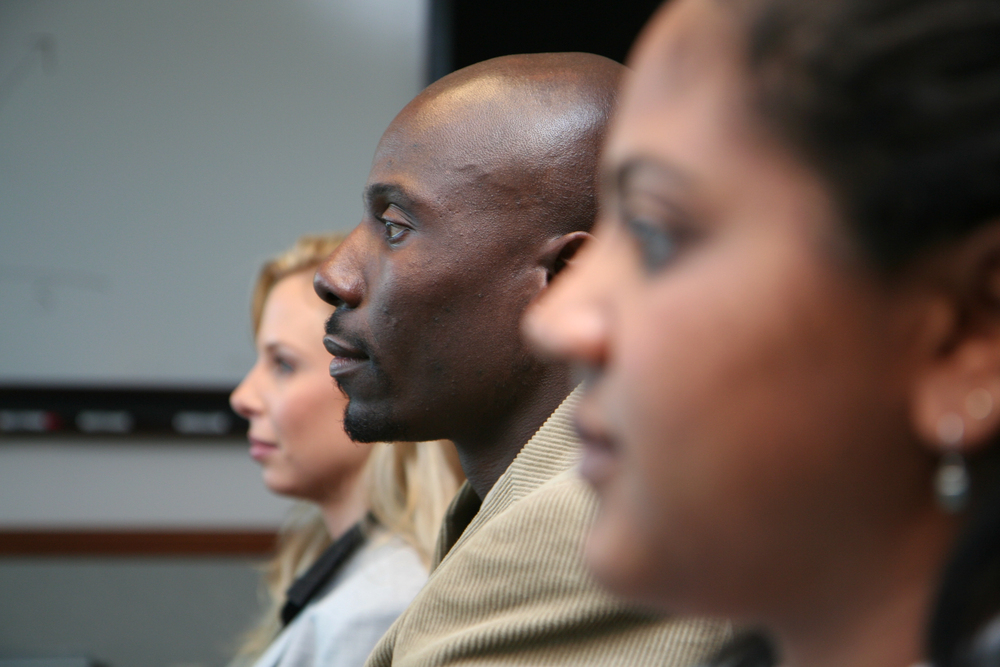Authors
Frederick Shack, LMSW1,4
Mardoche Sidor, MD1,2,3
Jose Cotto, LCSW1,5
Karen Dubin, PhD, LCSW2,4
Lesmore Willis Jr, MPA, MHA1
Gary Jenkins, MPA1
Affiliations
1Urban Pathways, New York, NY
2SWEET Institute, New York, NY
3Columbia University Center for Psychoanalytic Study and Research, New York, NY
4Columbia University, School of Social Work, New York, NY
5New York University, Department of Social Work, New York, NY
Correspondence concerning this article should be addressed to Mardoche Sidor, MD, Urban Pathways, at msidor@urbanpathways.org
Abstract
Training and initial enthusiasm are rarely enough to sustain new practices in mental health and supportive housing systems. This article explores the implementation of the Four-Stage Engagement Model—Sitting, Listening, Empathizing, Collaborating—through the lens of training, fidelity, and sustainability. Drawing on implementation science and organizational psychology, we describe the collaborative work of Urban Pathways and the SWEET Institute in embedding engagement practices across housing programs. Case studies highlight the role of reflective supervision, fidelity checklists, and leadership alignment in sustaining practice over time. Recommendations are offered for agencies seeking to move beyond training events toward long-term culture change.
Keywords
Training, Fidelity, Sustainability, Engagement, Implementation Science, Reflective Supervision, Trauma-Informed Care, Supportive Housing
Introduction
Staff training is often viewed as the primary solution for implementing new models. Yet research consistently shows that training alone accounts for only a fraction of actual behavior change (Joyce & Showers, 2002). Sustained implementation requires structures that support fidelity, supervision, and reinforcement across the system (Fixsen et al., 2005). The Urban Pathways–SWEET Institute partnership demonstrates how engagement practices can be trained, measured, and sustained through deliberate organizational strategies.
Theoretical Framework
The training-to-sustainability pipeline draws on:
- Implementation Science: Core drivers include competency (training, coaching), organization (systems, data), and leadership (Fixsen et al., 2005).
- Adult Learning Theory: Adults learn best through experiential practice, feedback, and relevance to their roles (Knowles, Holton, & Swanson, 2011).
- Fidelity Science: Fidelity checklists and self-assessment tools are critical for ensuring interventions are delivered as intended (Bond et al., 2009).
- Reflective Supervision: Ongoing reflective practice enhances retention and staff resilience (Heffron & Murch, 2010).
Application/Analysis
At Urban Pathways, training and sustainability efforts included:
- Initial Training: All staff—including case managers, housing specialists, and security—were trained in the Four-Stage Engagement Model.
- Fidelity Tools: The Engagement Stage Self-Assessment Checklist was used to track staff practices and align supervision.
- Reflective Supervision: Supervisors facilitated ongoing discussions to help staff apply engagement practices, explore countertransference, and refine micro-skills.
- Leadership Support: Leaders modeled engagement values and reinforced staff who demonstrated fidelity.
- Data Integration: Resident-reported trust and satisfaction were integrated into organizational metrics, reinforcing relational accountability
Case Example: One program site experienced high staff turnover and burnout. After embedding reflective supervision and fidelity reviews, staff reported increased clarity about their roles, and residents reported improved trust within six months.
Implications
- Practice: Training must be paired with coaching, fidelity checks, and leadership reinforcement.
- Supervision: Reflective supervision is key to helping staff internalize engagement practices.
- Policy: Funders and regulators should invest in sustainability structures rather than one-time trainings.
- Research: Studies should assess how fidelity tools and reflective supervision affect long-term resident outcomes.
- Systems: Partnerships between practice organizations (Urban Pathways) and training institutions (SWEET Institute) create the infrastructure for sustained culture change.
Conclusion
Training is only the first step. Fidelity and sustainability require deliberate systems of supervision, leadership, and organizational alignment. The Urban Pathways–SWEET Institute partnership demonstrates that with the right supports, engagement practices can move from workshops to lasting organizational culture.
References
- Bond, G. R., Evans, L., Salyers, M. P., Williams, J., & Kim, H. W. (2000). Measurement of fidelity in psychiatric rehabilitation. Mental Health Services Research, 2(2), 75–87.
- Fixsen, D. L., Naoom, S. F., Blase, K. A., Friedman, R. M., & Wallace, F. (2005). Implementation research: A synthesis of the literature. University of South Florida.
- Heffron, M. C., & Murch, T. (2010). Reflective supervision and leadership in early childhood programs. Zero to Three Press.
- Joyce, B., & Showers, B. (2002). Student achievement through staff development (3rd ed.). ASCD.
- Knowles, M. S., Holton, E. F., & Swanson, R. A. (2011). The adult learner: The definitive classic in adult education and human resource development. Elsevier.
This article is part of a collaboration between SWEET Institute and Urban Pathways.
Read the full scientific version HERE

